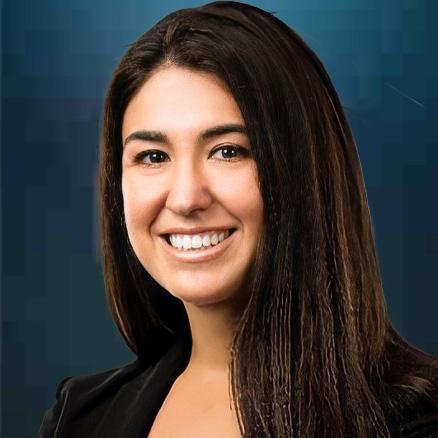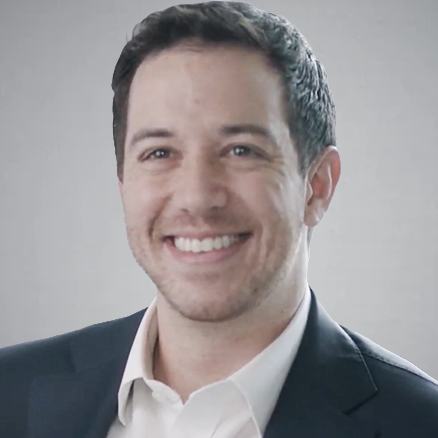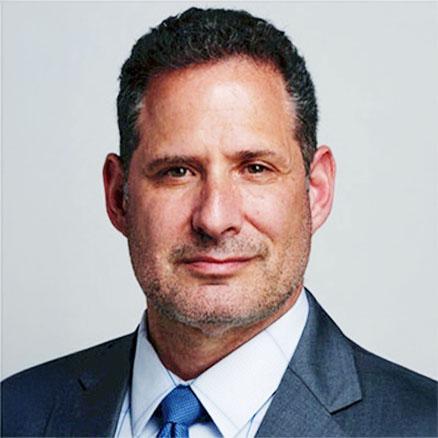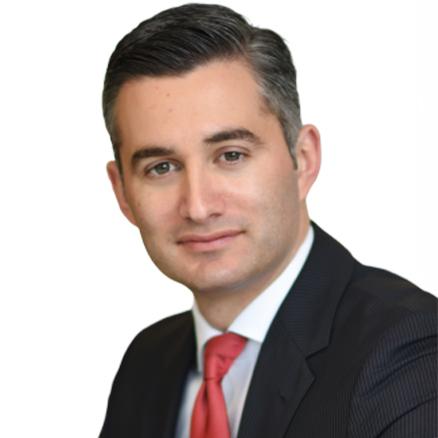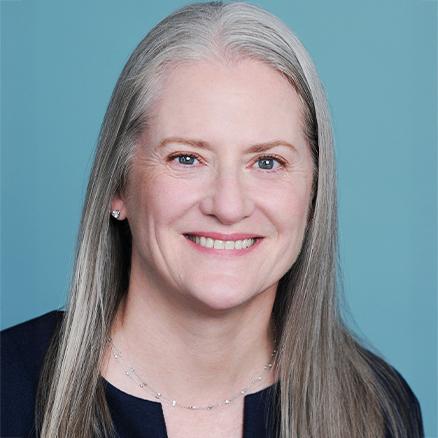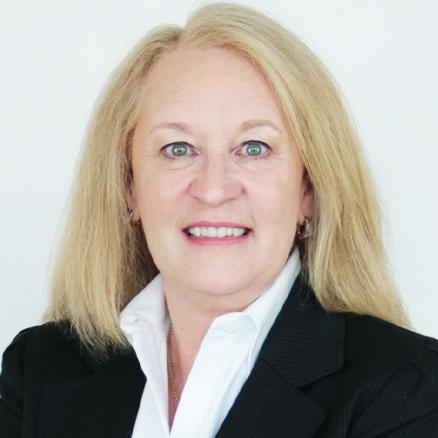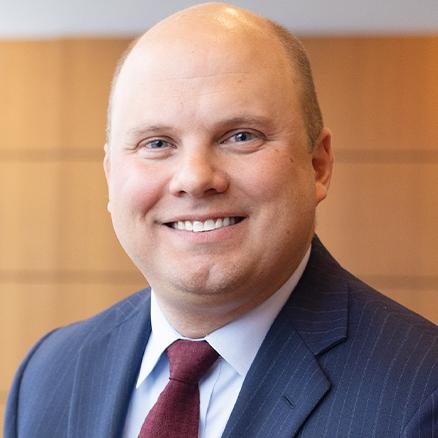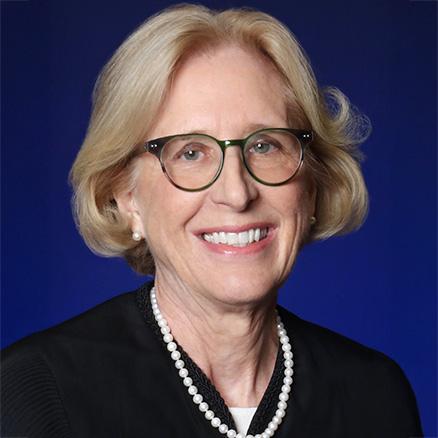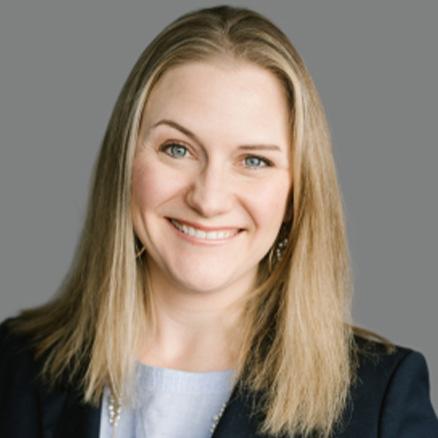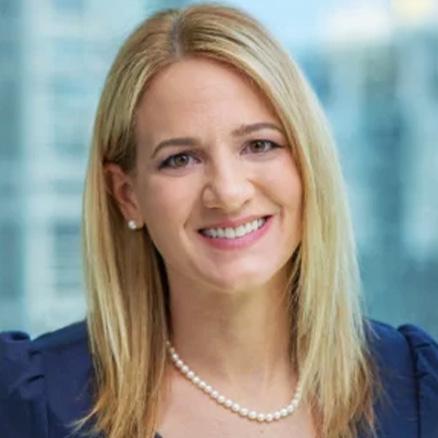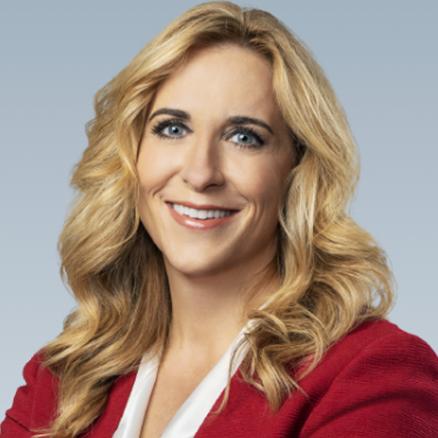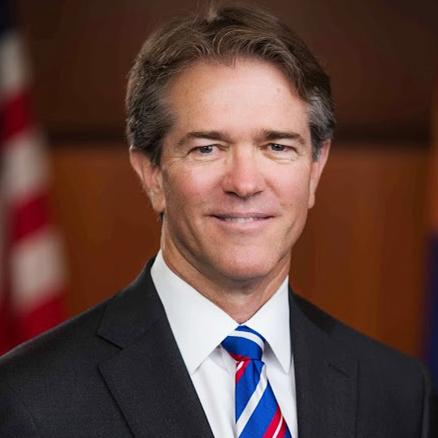American Board of Certification Exams
-
09:00 AM - 05:00 PM
Welcome Address
-
07:50 AM - 08:00 AM
Practical Applications of AI
This high-impact opening plenary will move decisively past the theoretical debate surrounding the use of artificial intelligence (AI) and will focus entirely on its practical applications. The panelists will discuss how firms are applying generative AI today to increase efficiency, reduce administrative workload and deliver better client outcomes, and will provide immediate, actionable intelligence on how AI can be used for specialized legal research, document analysis, financial data modeling and workflow automation in restructuring and insolvency cases.
-
08:00 AM - 09:15 AM
Moderators
-
 Karim A. GuirguisAmerican Bankruptcy Institute
Karim A. GuirguisAmerican Bankruptcy Institute
Speakers
-
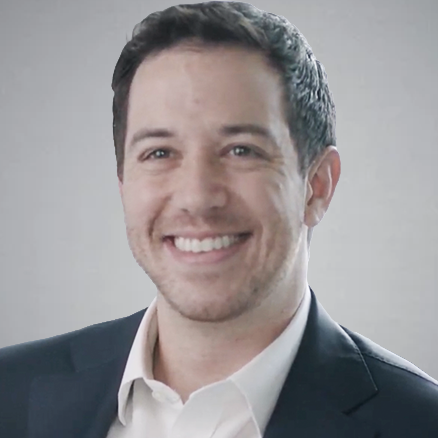 Julian BulaonOctus
Julian BulaonOctus -
 Malhar S. PagayPachulski Stang Ziehl & Jones LLP
Malhar S. PagayPachulski Stang Ziehl & Jones LLP -
 Randall ReeseStretto
Randall ReeseStretto -
 Miranda SwiftStinson LLP
Miranda SwiftStinson LLP -
 Mohnish ZaveriAlixPartners LLP
Mohnish ZaveriAlixPartners LLP
Refreshment Break
-
09:15 AM - 09:40 AM
Healthcare Bankruptcies and Managing Long-Term-Care Facility Distress
As financial pressures continue to mount in the health care industry, long-term-care facilities are facing unique operational and legal challenges that can quickly lead to distress or insolvency. This panel will explore the complexities of health care bankruptcies, including regulatory hurdles, patient care obligations, and strategies for restructuring or conducting orderly wind-downs. The panelists will discuss key considerations for debtors, creditors and trustees — such as Medicare and Medicaid reimbursement issues, facility licensing and resident transition plans — while offering practical insights on navigating these sensitive cases with both compliance and compassion in mind.
-
09:40 AM - 10:40 AM
Moderators
-
 Thomas W. BuckProvince, LLC
Thomas W. BuckProvince, LLC
Speakers
-
 David E. GordonPolsinelli
David E. GordonPolsinelli -
 Russell A. PerryAnkura Consulting Group, LLC
Russell A. PerryAnkura Consulting Group, LLC -
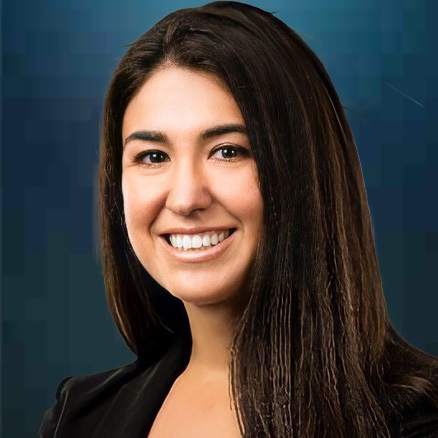 Jordana L. RenertUMB Bank
Jordana L. RenertUMB Bank
Real Estate Industry Focus: Confronting Challenges and Exploring Solutions
This panel will discuss the financial and legal challenges that continue to confront the real estate market by asset class — including office, hospitality, retail and residential — as well as solutions, bright spots and predictions.
-
09:40 AM - 10:40 AM
Moderators
-
 Dania SlimPillsbury Winthrop Shaw Pittman LLP
Dania SlimPillsbury Winthrop Shaw Pittman LLP
Speakers
-
 Daniel A. BloomRiker Danzig LLP
Daniel A. BloomRiker Danzig LLP -
 Gunnar BransonAFIRE
Gunnar BransonAFIRE -
 Ira L. HermanBlank Rome LLP
Ira L. HermanBlank Rome LLP
You’ve Ignored Subchapter V Long Enough: Tips for Debtor and Creditor Lawyers
This panel will navigate the evolving landscape of subchapter V bankruptcy with expert insights into strategies that protect your clients’ interests. The panelists will examine critical eligibility requirements — including debt caps, the “engaged in commercial or business activities” standard, and strategic timing considerations — while exploring the unique role of the subchapter V trustee in facilitating reorganization. Discover how recent circuit court splits on corporate discharge exceptions and projected disposable income requirements are reshaping case outcomes. Whether you are new to subchapter V or seeking innovative approaches to common challenges, you’ll gain practical strategies for both debtors and creditors, from pre-filing planning and eligibility pivots to confirmation tactics and § 523 litigation. Learn how to leverage — or defend against — the streamlined procedures that make subchapter V an increasingly attractive option for small business restructurings.
-
09:40 AM - 10:40 AM
Moderators
-
 Hon. Michelle M. HarnerU.S. Bankruptcy Court (D. Md.)
Hon. Michelle M. HarnerU.S. Bankruptcy Court (D. Md.)
Speakers
-
 Jeffrey S. AinsworthBransonLaw, PLLC
Jeffrey S. AinsworthBransonLaw, PLLC -
 Lacey S. BryanMarkus Williams Young & Hunsicker LLC
Lacey S. BryanMarkus Williams Young & Hunsicker LLC -
 Katharine B. ClarkThompson Coburn LLP
Katharine B. ClarkThompson Coburn LLP -
 Robert S. MarticelloRaines Feldman Littrell LLP
Robert S. MarticelloRaines Feldman Littrell LLP
Trustee’s Rights in the Debtor’s Shoes: In Pari Delicto, Barton and More
This session will explore the complex legal doctrines that define the rights and limitations of trustees and debtors in bankruptcy. The panelists will examine when trustees and debtors step into the shoes of the debtor, including how pre-petition rights and defenses impact the estate. The discussion also will analyze the application and limits of the in pari delicto doctrine, along with potential workarounds, and provide a close look at the Barton doctrine — its reach, exceptions, and whether protections continue after case closure. In addition, the panelists will consider the implications of the Fifth Circuit’s recent Highland Capital Management decision, including how gatekeeper provisions may reshape Barton protections for post-confirmation estate representatives.
-
09:40 AM - 10:40 AM
Speakers
-
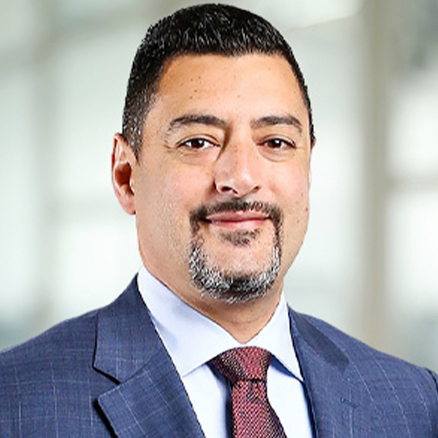 Robert F. ElgidelyFox Rothschild LLP
Robert F. ElgidelyFox Rothschild LLP -
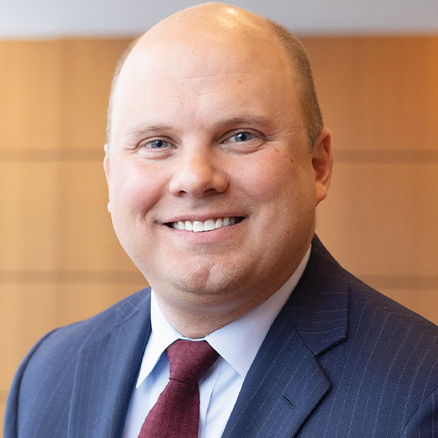 Hon. Paul R. HageU.S. Bankruptcy Court (E.D. Mich.)
Hon. Paul R. HageU.S. Bankruptcy Court (E.D. Mich.) -
 Ferve E. KhanBakerHostetler
Ferve E. KhanBakerHostetler -
 Cia H. MacklePachulski Stang Ziehl & Jones LLP
Cia H. MacklePachulski Stang Ziehl & Jones LLP
Hot Topics in International Law
This panel will bring together leading insolvency professionals from around the world — each with deep experience navigating complex cross-border restructurings — to discuss some of the most pressing and thought-provoking issues in international insolvency law today, including recognition challenges under chapter 15 and the development of pending recognition legislation in China; mechanisms for coordination and cooperation between jurisdictions with concurrent insolvency proceedings, including the growing role of cross-border mediation; recent developments in German and EU restructuring frameworks; and emerging trends and case studies from South America. Through comparative insights and practical examples, the panelists will explore how jurisdictions are rethinking recognition, harmonization and judicial collaboration in a rapidly evolving global landscape.
-
11:00 AM - 12:10 PM
Moderators
-
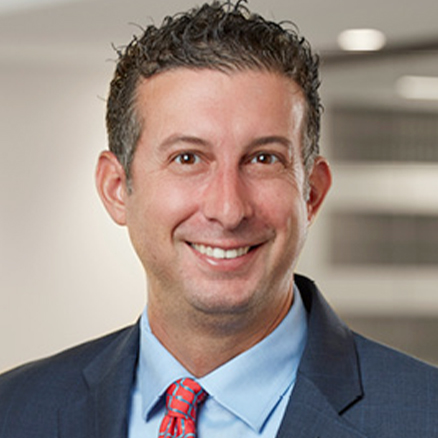 Eric S. ChafetzLowenstein Sandler LLP
Eric S. ChafetzLowenstein Sandler LLP
Speakers
-
 Florian BruderDLA Piper
Florian BruderDLA Piper -
 Susana Hidvegi ArangoRiveron Consulting, LLC
Susana Hidvegi ArangoRiveron Consulting, LLC -
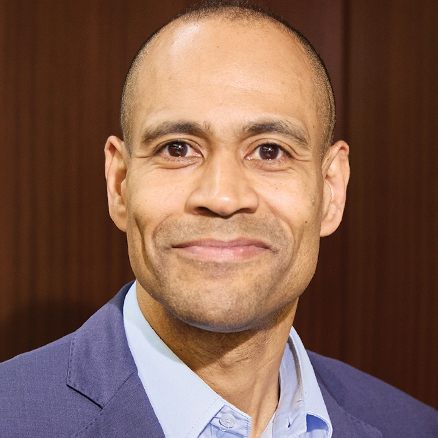 Hon. Christopher M. LopezU.S. Bankruptcy Court (S.D. Tex.)
Hon. Christopher M. LopezU.S. Bankruptcy Court (S.D. Tex.) -
 Minglei WuMinglei Wu Mediation and Advisory
Minglei WuMinglei Wu Mediation and Advisory
Crypto Fraud in Chapter 11: Decoding Crypto Bankruptcies
This panel will explore the intricate landscape of recent crypto-related bankruptcies through a multi-faceted lens. The panelists will examine the fast-paced world of on-chain tracing and flow-of-funds analysis, the unique valuation challenges posed by highly volatile digital assets, and the shifting regulatory environment impacting insolvency proceedings. Illustrative case studies from prominent bankruptcies will ground the discussion, offering practical insights into how legal, financial and technical teams are adapting to these emerging challenges.
-
11:10 AM - 12:10 PM
Moderators
-
 Howard A. CohenFox Rothschild LLP
Howard A. CohenFox Rothschild LLP
Speakers
-
 Adam MeislikForce 10 Partners LLC
Adam MeislikForce 10 Partners LLC -
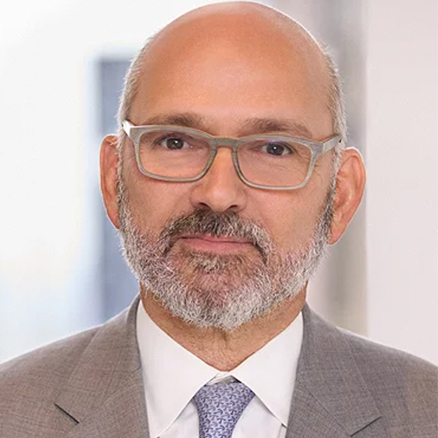 Todd R. SnyderPiper Sandler Companies
Todd R. SnyderPiper Sandler Companies -
 Jared M. TullyFrost Brown Todd LLP
Jared M. TullyFrost Brown Todd LLP -
 Jason WrightStout Risius Ross, LLC
Jason WrightStout Risius Ross, LLC
Approaches to Financial Distress in the Agriculture Sector
Agricultural businesses face unique challenges in today’s evolving economic and legal landscape. This panel will explore the key issues shaping agricultural bankruptcies, including the root causes of financial distress for farmers and agricultural enterprises, the role of chapter 12 as a vital restructuring tool, and the range of out-of-court alternatives available to distressed debtors. The panelists also will discuss emerging case law, legislative developments and practical strategies that influence the outcomes of agricultural bankruptcy proceedings, and will provide a comparative analysis of chapter 12, chapter 11 and subchapter V by examining their respective benefits, limitations and procedural considerations for agricultural cases.
-
11:10 AM - 12:10 PM
Speakers
-
 Hon. Catherine J. FurayU.S. Bankruptcy Court (W.D. Wis.)
Hon. Catherine J. FurayU.S. Bankruptcy Court (W.D. Wis.) -
 Krystal R. MikkilineniDentons Davis Brown
Krystal R. MikkilineniDentons Davis Brown -
 Austin PeifferAg & Business Legal Strategies
Austin PeifferAg & Business Legal Strategies -
 Donald L. SwansonKoley Jessen
Donald L. SwansonKoley Jessen -
 Nancy J. WhaleyOffice of Nancy J. Whaley, Standing Chapter 13 Trustee
Nancy J. WhaleyOffice of Nancy J. Whaley, Standing Chapter 13 Trustee
Financial Distress Research Project: What Helps Consumer Debtors Help Themselves?
ABI’s Vice President-Research Grants will interview Prof. Emeritus Lois Lupica about the structure, progress and preliminary findings of her ABI Endowment-funded Financial Distress Research Project, which examined the tools and other forms of assistance consumer debtors have been using to improve their financial well-being, and determined which ones have proven to be the most successful.
-
11:10 AM - 12:10 PM
Moderators
-
 Hon. Hannah L. BlumenstielU.S. Bankruptcy Court (N.D. Cal.)
Hon. Hannah L. BlumenstielU.S. Bankruptcy Court (N.D. Cal.)
Speakers
-
 Lois R. LupicaCommunity Economic Defense Project
Lois R. LupicaCommunity Economic Defense Project
UCC Liens in Consumer Bankruptcy
This panel will explore common (and uncommon) examples of UCC liens in consumer cases. The panelists will discuss goods covered by Article 9, perfection issues, valuations and chapter 7 redemption issues, and will analyze key cases that are shaping the UCC landscape.
-
02:00 PM - 03:00 PM
Moderators
-
 Patrick HrubyBrock & Scott, PLLC
Patrick HrubyBrock & Scott, PLLC
Speakers
-
 Robert M. LawlessThe University of Illinois College of Law
Robert M. LawlessThe University of Illinois College of Law -
 William J. SchumacherWinthrop & Weinstine, PA
William J. SchumacherWinthrop & Weinstine, PA -
 Michelle H. BassWolfson Bolton Kochis PLLC
Michelle H. BassWolfson Bolton Kochis PLLC
The Art of Fraud Litigation: Navigating the Path from Discovery to the Courtroom
This interactive panel will take a practical approach to exploring best practices in bankruptcy litigation, with a particular emphasis on fraud-related claims. Using hypothetical fact patterns, the panelists will guide attendees through the key phases of contested litigation — from the initial investigation and assessment of potential claims to courtroom strategy and trial execution. Topics will include evaluating causes of action and defenses, drafting effective complaints, managing motion practice, and employing persuasive techniques in the courtroom, including opening statements, witness examination and the presentation of evidence. Whether dealing with traditional bankruptcy disputes or complex fraud allegations, attendees will gain valuable insights into prosecuting and defending litigation in the bankruptcy context.
-
02:00 PM - 03:00 PM
Moderators
-
 Dana L. Robbins-BoehnerBurr & Forman LLP
Dana L. Robbins-BoehnerBurr & Forman LLP
Speakers
-
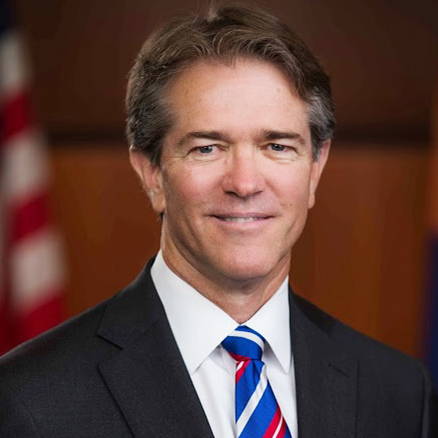 Hon. Daniel P. CollinsU.S. Bankruptcy Court (D. Ariz.)
Hon. Daniel P. CollinsU.S. Bankruptcy Court (D. Ariz.) -
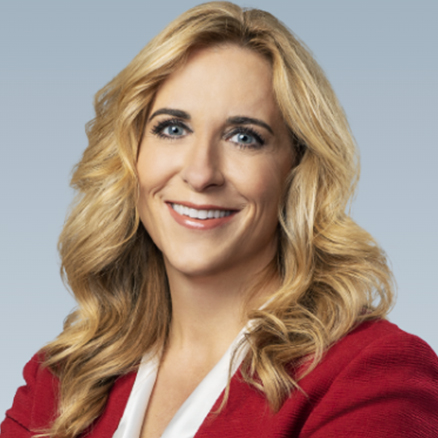 Aneca E. LasleyIce Miller LLP
Aneca E. LasleyIce Miller LLP -
 Lisa S. TsaiReid Collins & Tsai LLP
Lisa S. TsaiReid Collins & Tsai LLP -
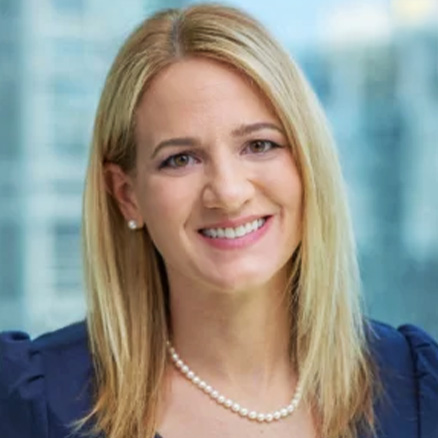 Anne VanderkampAlixPartners LLP
Anne VanderkampAlixPartners LLP
Using LMEs in Asset Sales
This panel will examine the strategic use of LMEs in the context of asset sales within restructuring frameworks, such as the role of LMEs in facilitating sales, structuring them as conditions to closing, funding LMEs through sale proceeds, or utilizing asset sales as an exit strategy from LMEs or restructuring plans. The panelists will share their insights on the current trends and practical considerations that are shaping these increasingly sophisticated transactions.
-
02:00 PM - 03:00 PM
Speakers
-
 Mark B. JoachimPolsinelli
Mark B. JoachimPolsinelli -
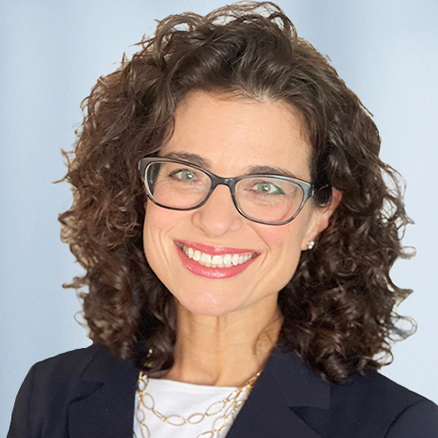 Rachel Jaffe MauceriRobinson + Cole LLP
Rachel Jaffe MauceriRobinson + Cole LLP -
 Thomas S. KesslerCleary Gottlieb Steen & Hamilton LLP
Thomas S. KesslerCleary Gottlieb Steen & Hamilton LLP -
 Matthew P. SorensonDevelopment Specialists, Inc.
Matthew P. SorensonDevelopment Specialists, Inc.
Navigating Ethical Crossroads: Professional Responsibility in Bankruptcy Mediation and Negotiation
This session will examine the complex ethical challenges that arise when mediation and negotiation processes intersect with distressed scenarios, including conflicts between confidentiality requirements and disclosure obligations, navigating fiduciary duties in collaborative settlement discussions (particularly out-of-court RSAs), and managing professional responsibility issues in multi-party bankruptcy mediations. The panelists will provide practical guidance for attorneys, trustees, advisors and mediators on how to balance the informal and confidential nature of mediation with the heightened ethical and fiduciary standards required in insolvency contexts. Attendees will gain valuable insights into best practices for maintaining ethical compliance while effectively utilizing mediation/negotiation as a tool for resolving disputes and facilitating insolvency issues.
-
02:00 PM - 03:00 PM
Moderators
-
 Hon. Judith K. FitzgeraldTucker Arensberg, PC
Hon. Judith K. FitzgeraldTucker Arensberg, PC
Speakers
-
 Kara E. CasteelASK LLP
Kara E. CasteelASK LLP -
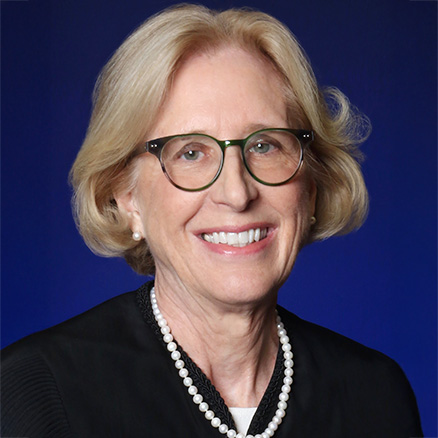 Hon. Roberta A. ColtonU.S. Bankruptcy Court (M.D. Fla.)
Hon. Roberta A. ColtonU.S. Bankruptcy Court (M.D. Fla.) -
 Robert M. FishmanAlgon Group LLC
Robert M. FishmanAlgon Group LLC
Refreshment Break
-
03:00 PM - 03:15 PM
Navigating Legislative Shifts: The Effects on Health Care Companies
Congressional budget decisions and executive actions are increasingly shaping the bankruptcy landscape for health care companies. This panel will examine how proposed Medicaid cuts, pharmaceutical reforms and the sweeping 2025 megabill are affecting financial distress, restructuring strategies and creditor dynamics in the sector. The panelists will explore the legal and operational implications of these legislative shifts, and how stakeholders are adapting in a rapidly evolving policy environment.
-
03:15 PM - 04:15 PM
Moderators
-
 Hon. Laurel Myerson IsicoffU.S. Bankruptcy Court (S.D. Fla.)
Hon. Laurel Myerson IsicoffU.S. Bankruptcy Court (S.D. Fla.)
Speakers
-
 Dan CarpenterGibbins Advisors, LLC
Dan CarpenterGibbins Advisors, LLC -
 John S. MairoGibbons P.C.
John S. MairoGibbons P.C. -
 Jennifer M. MeyerowitzSAK Healthcare
Jennifer M. MeyerowitzSAK Healthcare -
 Mark R. OwensBarnes & Thornburg LLP
Mark R. OwensBarnes & Thornburg LLP
The Global Evolution of Crypto Regulation: What's Next, and How Cross-Border Bankruptcies Might Be Affected
This panel will discuss the fast-changing landscape of crypto regulation across different jurisdictions, and the effects it is having on crypto-focused bankruptcies both here and abroad.
-
03:15 PM - 04:15 PM
Moderators
-
 Joanna D. CaytasPorter Hedges LLP
Joanna D. CaytasPorter Hedges LLP
Speakers
-
 Nicholas FoxMourant Ozannes
Nicholas FoxMourant Ozannes -
 Stacy A. LutkusMcDermott Will & Emery LLP
Stacy A. LutkusMcDermott Will & Emery LLP -
 Lauren TangVirtus Law LLP
Lauren TangVirtus Law LLP
Deconstructing the Code: Spotlight on § 362
Section 362 of the Bankruptcy Code is one of the most frequently litigated — and often misunderstood — provisions in bankruptcy practice. This session will take a deep dive into the automatic stay, exploring its scope, application and termination. The panelists will analyze key distinctions among the subsections of § 362 and how they interact with other provisions of the Code. Attendees will gain practical insights into effective strategies for obtaining relief from stay, including grounds for relief beyond lack of adequate protection, and will learn how to navigate the procedural and evidentiary requirements for efficiently and cost-effectively securing or confirming relief from the stay.
-
03:15 PM - 04:15 PM
Moderators
-
 Jeffrey S. FraserAlbertelli Law
Jeffrey S. FraserAlbertelli Law
Speakers
-
 Caleb ChaplainChaplain Dufraine PLLC
Caleb ChaplainChaplain Dufraine PLLC -
 Kara K. GendronMott & Gendron Law
Kara K. GendronMott & Gendron Law -
 Hon. John T. GreggU.S. Bankruptcy Court (W.D. Mich.)
Hon. John T. GreggU.S. Bankruptcy Court (W.D. Mich.)
Follow-the-Numbers Workshop: A Lawyer’s Guide to Reading Tax Returns
This practical, hands-on workshop will help bankruptcy and restructuring professionals uncover the story behind the numbers. Learn how to spot hidden red flags, missing assets and misleading data in business tax filings. Through real-world examples and customized case materials, this session will walk you through IRS Form 1065 and related financial statements to help you interpret key information, strengthen your arguments and uncover critical insights.
-
03:15 PM - 04:15 PM
Moderators
-
 Matthew H. LannanAlvarez & Marsal
Matthew H. LannanAlvarez & Marsal
Speakers
-
 Aaron G. ChambersBoos & Associates, PC
Aaron G. ChambersBoos & Associates, PC -
 Nicholas ChristianoRubinBrown LLP
Nicholas ChristianoRubinBrown LLP -
 Stephanie J. DrewRubinBrown LLP
Stephanie J. DrewRubinBrown LLP -
 Liz FriedRubinBrown LLP
Liz FriedRubinBrown LLP -
 J.P. MarcosAlastar Partners
J.P. MarcosAlastar Partners -
 Marc B. RossKCP Advisory Group/HBM
Marc B. RossKCP Advisory Group/HBM -
 Virginia TateFAI International, Forensic Accounting & Investigations
Virginia TateFAI International, Forensic Accounting & Investigations
Commercial Fraud Committee Reception
Join us for the Commercial Fraud Committee Reception. We are thankful to Alvarez & Marsal, Burr & Forman, Ice Miller, Jones Walker, and Reid Collins & Tsai for sponsoring this event.
-
04:30 PM - 05:30 PM
ABC Reception
Gather with fellow professionals at the ABC Reception for an evening of networking and conversation in a relaxed setting. Enjoy refreshments and connect with colleagues during this special event. We thank The Cavanagh Law Firm, P.A.; FisherBroyles LLP; and Slocum Law for sponsoring this event.
-
05:30 PM - 06:30 PM
Final Night Dinner
Join us for a memorable final-night dinner as we close out the conference with an evening filled with connection and desert-night ambiance. Set against the stunning backdrop of Tucson’s open skies, guests will enjoy cocktails, great food, and a variety of fun games designed to keep the party going.
To keep the energy high, the evening will feature casino-style tables, interactive activities, and plenty of opportunities to relax, unwind, and connect with colleagues one last time. Whether you’re testing your luck, sharing conversations by the fire, or squeezing in a final round of networking, the atmosphere promises to be warm, festive, and welcoming.
This celebratory closing dinner is the perfect way to cap off a successful conference—sending everyone home with great memories, new connections, and a touch of Tucson magic. Be sure to add it to your registration.
-
07:00 PM - 10:00 PM
Breakfast
-
07:30 AM - 08:30 AM
Welcome Address
-
08:00 AM - 08:15 AM
Bill Rochelle's Top 10 Cases You Should Be Reading About But Aren’t
In 2024 alone, more than 517,000 bankruptcy cases were filed in the U.S., and bankruptcy judges issued an estimated 521 reported decisions, plus another 1,241 unreported decisions. How many of those cases and issues are you familiar with? You might know what the Supreme Court did in Purdue Pharma, what the Third Circuit did in Boy Scouts, what the Fourth Circuit did in Bestwall, and what bankruptcy courts are doing in cases like Red River Talc, Celsius and FTX, but do you know the latest trends in equitable tolling, chapter 5 avoidance claims and conversion rights? Bill Rochelle and this panel of esteemed bankruptcy judges will be holding a lively discussion of a few critical-but-under-the-radar decisions that you should be reading about but likely are not. You won’t want to miss this educational and eye-opening conversation!
-
08:15 AM - 09:30 AM
Moderators
-
 Bill RochelleAmerican Bankruptcy Institute
Bill RochelleAmerican Bankruptcy Institute
Speakers
-
 Hon. Daniel P. CollinsU.S. Bankruptcy Court (D. Ariz.)
Hon. Daniel P. CollinsU.S. Bankruptcy Court (D. Ariz.) -
 Hon. Christopher M. LopezU.S. Bankruptcy Court (S.D. Tex.)
Hon. Christopher M. LopezU.S. Bankruptcy Court (S.D. Tex.) -
 Hon. Laurel Myerson IsicoffU.S. Bankruptcy Court (S.D. Fla.)
Hon. Laurel Myerson IsicoffU.S. Bankruptcy Court (S.D. Fla.) -
 Hon. Sage M. SiglerU.S. Bankruptcy Court (N.D. Ga.)
Hon. Sage M. SiglerU.S. Bankruptcy Court (N.D. Ga.) -
 Hon. Elizabeth S. StongU.S. Bankruptcy Court (E.D. N.Y.)
Hon. Elizabeth S. StongU.S. Bankruptcy Court (E.D. N.Y.)
Break
-
09:30 AM - 09:35 AM
Criminal Exposure in Bankruptcy Cases
This panel, featuring a former U.S. Attorney, bankruptcy trustee and examiner, will cover such key topics as mail/wire fraud, concealment of assets, false statements, perjury and the Fifth Amendment as they relate to crimes in bankruptcy to help keep bankruptcy practitioners and their respective clients out of trouble.
-
09:35 AM - 10:35 AM
Moderators
-
 Michael E. HastingsWoods Rogers Vandeventer Black PLC
Michael E. HastingsWoods Rogers Vandeventer Black PLC
Speakers
-
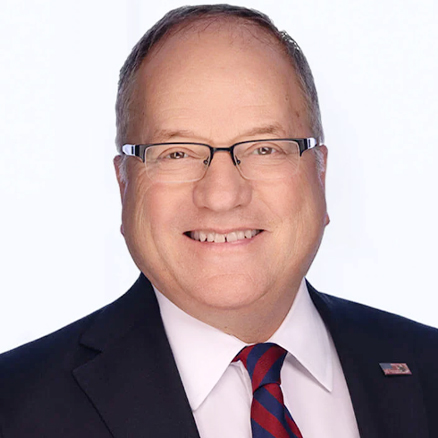 John P. FishwickFishwick & Associates
John P. FishwickFishwick & Associates -
 Jolene E. WeeJW Infinity Consulting LLC
Jolene E. WeeJW Infinity Consulting LLC
Inside Debt's Grip: A Conversation with Professor Bob Lawless
Join Judge Michelle Harner as she leads Professor Bob Lawless through a discussion of Debt's Grip, a recent book co-authored by Prof. Lawless, Pamela Foohey, and Deborah Thorne. In this interview, Judge Harner and Professor Lawless will examine the realities of financial struggle in the United States through the experiences of people who have filed for bankruptcy. The book uses data from the Consumer Bankruptcy Project combined with personal narratives to argue that most bankruptcies result from crises like job loss or medical emergencies, rather than irresponsibility.
-
09:35 AM - 10:35 AM
Moderators
-
 Hon. Michelle M. HarnerU.S. Bankruptcy Court (D. Md.)
Hon. Michelle M. HarnerU.S. Bankruptcy Court (D. Md.)
Speakers
-
 Robert M. LawlessThe University of Illinois College of Law
Robert M. LawlessThe University of Illinois College of Law
Networking Break
-
10:35 AM - 10:50 AM
ABI National Ethics Task Force Examines Hot Topics
Join members of ABI’s 2012-13 National Ethics Task Force as they update their 2013 Final Report on bankruptcy ethics best practices with this lively panel discussion on current hot topics, including required (and recommended) estate professional disclosures, independent directors, access to justice and artificial intelligence.
-
10:50 AM - 11:50 AM
Moderators
-
 Michael P. RichmanRichman & Richman LLC
Michael P. RichmanRichman & Richman LLC
Speakers
-
 Richard P. CarmodyAdams and Reese LLP
Richard P. CarmodyAdams and Reese LLP -
 Susan M. FreemanWomble Bond Dickinson (US) LLP
Susan M. FreemanWomble Bond Dickinson (US) LLP -
 Edward T. Gavin IVGavin/Solmonese LLC
Edward T. Gavin IVGavin/Solmonese LLC -
 Nancy B. RapoportWilliam S. Boyd School of Law, University of Nevada
Nancy B. RapoportWilliam S. Boyd School of Law, University of Nevada -
 Hon. Elizabeth S. StongU.S. Bankruptcy Court (E.D. N.Y.)
Hon. Elizabeth S. StongU.S. Bankruptcy Court (E.D. N.Y.)
Adjourn
-
11:50 AM















































